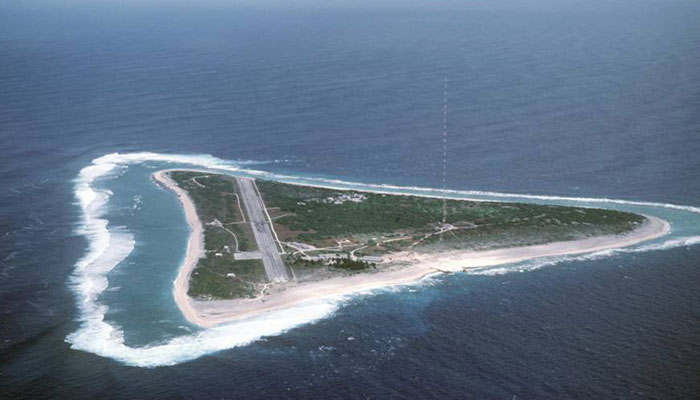Japanese researchers find reserves of rare earth elements in deep-sea mud
Deposit contains more than 16 million tons of elements needed to build high-tech products
April 14, 2018

Japanese researchers have mapped vast reserves of rare earth elements in deep-sea mud, enough to feed global demand on a "semi-infinite basis," according to a fresh study.
The deposit, found within Japan's exclusive economic waters, contains more than 16 million tons of the elements needed to build high-tech products from mobile phones to electric vehicles, according to the study, released Tuesday in the journal "Scientific Reports."
The team, comprised of several universities, businesses and government institutions, surveyed the western Pacific Ocean near Minamitorishima Island, Japan.
In a sample area of the mineral-rich region, the team's survey estimated 1.2 million tons of "rare earth oxide" deposited there, said the study, conducted jointly by Yutaro Takaya, a researcher with Waseda University and Yasuhiro Kato of the University of Tokyo, among others.
The finding extrapolates that a 2,500-square kilometre region off the southern Japanese island should contain 16 million tons of the valuable elements, and "has the potential to supply these metals on a semi-infinite basis to the world," the study said.
The area reserves offer "great potential as ore deposits for some of the most critically important elements in modern society," it said.
The report said there were hundreds of years of reserves of most of the rare earths in the area surveyed.
The team has also developed an efficient method to separate valuable elements from others in the mud.
The world relies heavily on China for rare earths, with Beijing producing most of the elements currently available on the market.
But Beijing has severely restricted exports of these products at times of diplomatic tension.
In 2010, for example, Japanese manufacturers faced serious supply shortages as China limited the valuable exports.
That came after Japan arrested the captain of a Chinese trawler that was involved in a run-in with Japanese coastguards near the disputed Senkaku Islands, claimed by China as the Diaoyus.
The Japanese study stressed the importance of the efforts to develop efficient and economic methods to collect the deep-sea mud.
"The enormous resource amount and the effectiveness of the mineral processing are strong indicators that this new (rare-earth rich mud) resource could be exploited in the near future," the study said.











